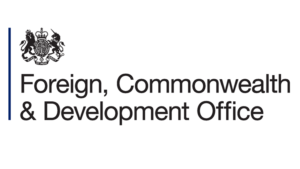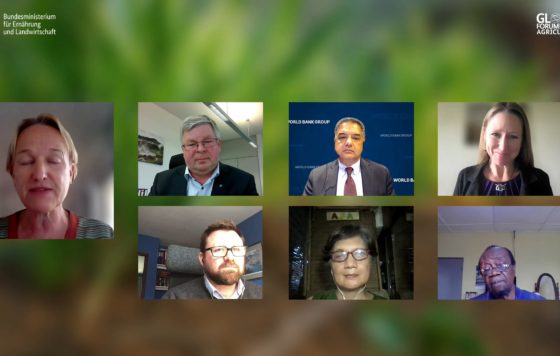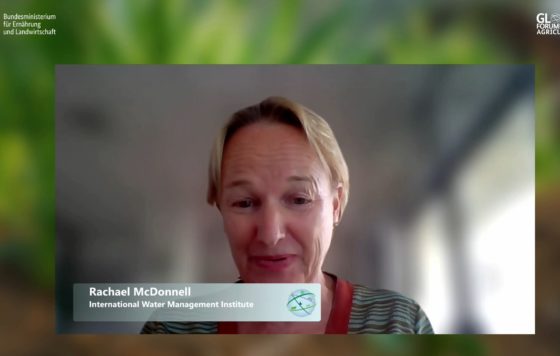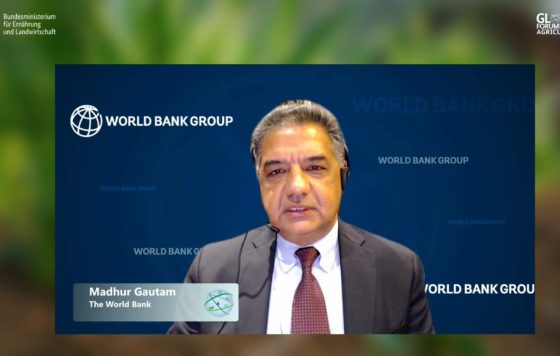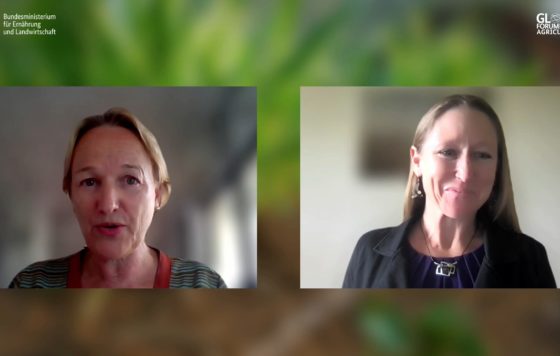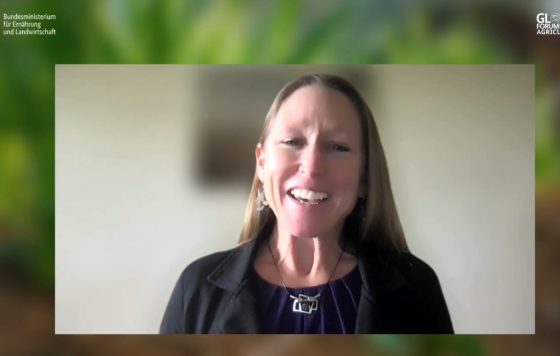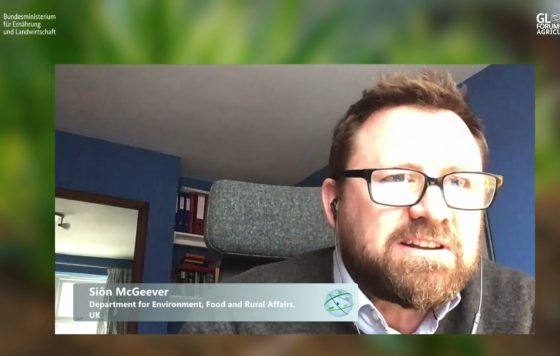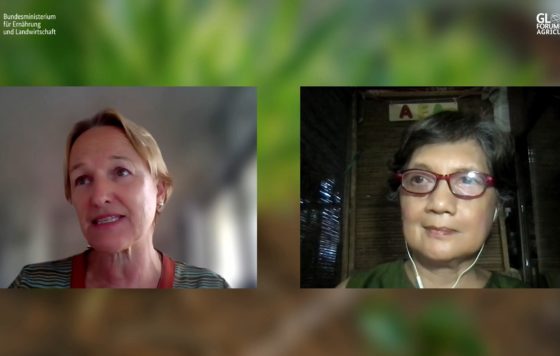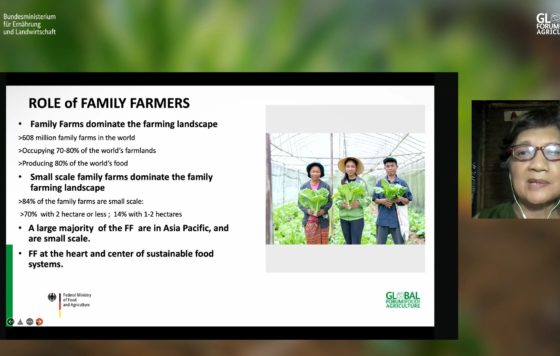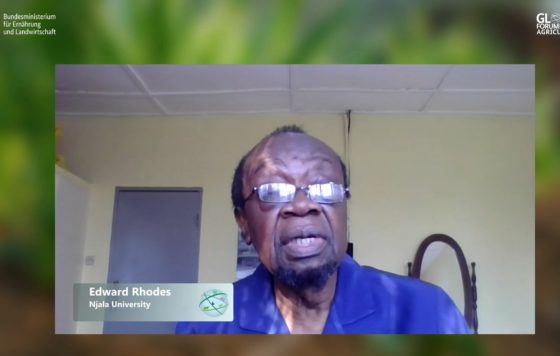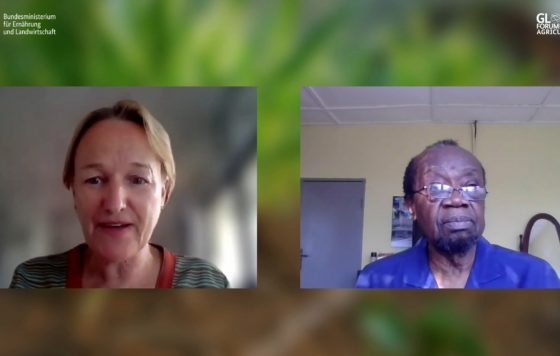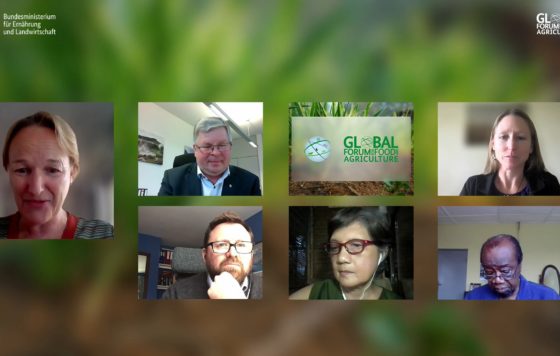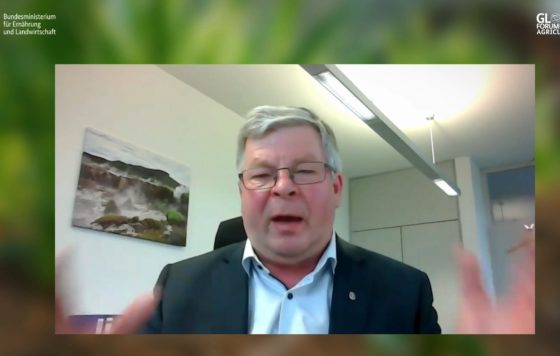Multi-dimensional soil health – pathways to incentivise improvements
Foreign, Commonwealth and Development Office UK
Time: Thursday, 27. January 2022, 9:30 a.m. – 10:30 a.m. (CET), subsequent deep dive 10:30 a.m. – 11:00 a.m.
Languages: English, German
Summary:
Public policies and support play a key role in setting the incentives that drive the decision of agricultural producers in what to produce and how they produce it. One of the key decisions with large potential impacts is the adoption of sustainable practices and technologies to restore and maintain good soil health. Governments provide over $700bn a year in public support to their food and agriculture sectors, with this support often incentivising harmful practices that contribute to land degradation, chemical run off and deforestation, and a tiny fraction supporting climate resilience and nature. Yet, besides the negative impact this has on future food security by compromising land productivity, agriculture – and soils – are unique in their ability to actively contributing to decarbonizing the atmosphere and recarbonizing nature by sequestering and storing very large volumes of carbon in soils.
There is a huge opportunity to catalyse global action to repurpose public policies towards those that deliver sustainable outcomes benefiting people, nature and our climate. Following recognition at the UN Food Systems Summit (September 2021) and COP26 of just how important this agenda has become, this session will highlight and discuss policy approaches and opportunities for repurposing public support to incentivise and support land users to improve soil health in all its dimensions. The expert panel will discuss challenges in these areas, based on real-world examples of policy initiatives; bringing perspectives from policy makers, farmer voices and academia. This event contributes to the on-going Policy Dialogue on Accelerating Transition to Sustainable Agriculture, co-convened by the UK and the World Bank, and to taking forward the aims of the Policy Action Agenda launched at COP26.
Recording
Moderator
International Water Management Institute – Rome Office, Italy
Role Title:
Deputy Director General – Research for Development (Jun 2021 – present)
Strategic Program Director – Water, Climate Change and Resilience (Jul 2019-present);
Principal Researcher (Feb 2019-June 2021)
Organization:
International Centre for Biosaline Agriculture, Dubai, UAE
Role Title:
Head of Climate Change Modeling and Adaptation Section (May 2015-Oct 2018)
Principal Researcher (June 2012–May 2015)
Water Policy and Governance Scientist (June-2008-2012)
Organization:
Oxford Water, School of Geography and Environment, University of Oxford, UK
Role Title:
Senior Visiting Research Associate (2013-2015)
Senior Research Scientist (Jan 2002 – 2013)
MSc Course Director (Jan 2002-July 2005)
Departmental Lecturer (Jan 1993-Oct 1996)
1990-1994
PhD University of Oxford, UK, Herford College, Senior Scholar, funded by the Mortimer May Graduate Scholarship “A GIS-Based Hierarchical Simulation Model for Assessing the Impacts of Large Dam Projects”
1989
Grad Diploma in Mapping and Surveying Studies, University of Queensland, Australia, funded by Rotary International Scholar Award
1985-1988
BSc Honours in Geography (Physical Geography specialization), University of Reading, UK
Panel Guests
After completing his dissertation at the Federal Biological Research Centre for Agriculture and Forestry (now the Julius Kühn Institute), Dr. Zornbach moved to the Federal Ministry of Food and Agriculture (BMEL) in June 1990. There he worked in the Plant Protection Unit and, since February 2017, in the Sustainability and Climate Protection, Climate Impacts Unit (Unit 521), which he now heads.
Dr. Zornbach chaired the OECD Pesticide Risk Reduction Steering Group for over 10 years, chaired a number of OECD seminars and workshops on various plant protection topics, and most recently chaired the OECD Working Group on Pesticides. This is the highest body within the OECD dealing with plant protection issues. In 2018/2019, Dr. Zornbach served as Chair of the Global Research Alliance on Agricultural Greenhouse Gases (GRA).
He has worked with a number of international and development agencies undertaking field work including the IFDC, FAO, UNU-INRA, USAID and EU, most recently as National Team Leader of an EU funded National Comprehensive Soil Survey of Sierra Leone contributing to a framework for the development of a national soil management strategy. Professor Rhodes has also worked in Liberia, Togo, Ghana, Niger, Malawi and Mozambique.
KEY AREAS OF EXPERIENCE
Training at the Tertiary Education Level; Education and Research Administration; Agriculture/Agronomy/ Extension; Farming Systems; Soil Science/Soil Chemistry/Soil Fertility/Fertilizers/Soil Conservation; Soil Resources Inventories; Soil Health; Vulnerability of Agricultural Systems to Climate Change; Adaptation in agriculture to climate change; Climate Smart Agriculture along Agricultural Value Chains; Green Economy; Agro-ecology Practices; Natural Resources Management; Research/Extension/Farmer Participatory Agricultural Research for Development; Integrated Agricultural Research for Development; Agriculture-Nutrition Linkage; Sustainable Agricultural Development; Training of Agricultural Extension Agents; Food Security/Poverty Alleviation; Agricultural and Educational Policies; Scientific Writing; Concept Note/Feasibility Study/Project Preparation; Project Implementation & Evaluation; Staff Evaluation; Sector, Country and Regional Reviews & Synthesis; Review and Editing of Reports and Papers; Preparation of Policy Brief.
Siôn’s background is in International Development with experience designing and implementing programmes and developing UK Government policy in Africa, the Middle East and around the world. Over 14 years Siôn worked in both the Department for International Development and the Foreign and Commonwealth Office. Siôn’s programme and policy work has focused on transport, trade facilitation, climate resilience and climate finance, renewable energy, water and sanitation, child nutrition, land reform and migration.
Before his development career he worked in manufacturing management for five years in the UK, Australia and the Pacific Islands. Siôn has degrees in Engineering and in Environment, Development and Policy.
In 2018, she was nominated as a landscape laurel:
Soil scientist Leigh Winowiecki works with over 8,000 farmers to restore degraded land in Africa


